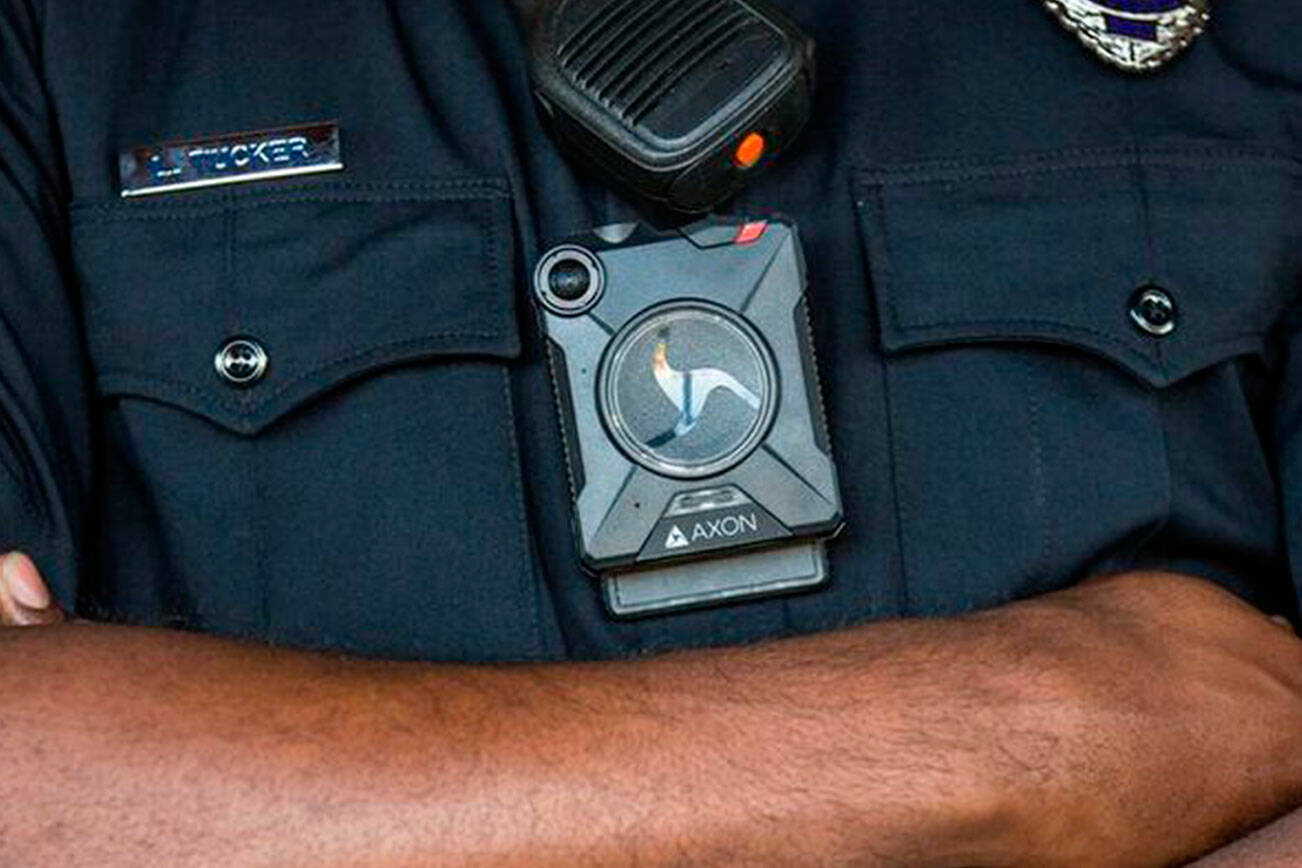Various law enforcement agencies in Western Washington have received grant funding to support local agency needs, including funding for Auburn’s fireworks emphasis patrols along with a body-worn camera program and the hiring of mental health professionals for the King County Sheriff’s Office.
The U.S. Department of Justice awarded the recipients of the Byrne Grant funding in advance of the new fiscal year, according to the Department of Justice.
Auburn police received $38,323 in funding for the department’s fireworks emphasis patrols and the King County Sheriff’s Office received more than $2 million for the implementation of body-worn cameras and the hiring of mental health professionals as part of the King County Crisis Intervention team.
Body-worn cameras and mental health professionals
According to Sgt. Eric White, public information officer for the King County Sheriff’s Office, the agency received $1 million to support body-worn camera equipment and training, $1 million for a co-response program, and $348,285 for a Crisis Intervention Team research project.
The body-worn camera system serves as an ongoing implementation since 2022, according to White’s email. The agency aims for a completion date for the body-worn camera system in June 2024 — dependent on whether there are any delays on delivery or training classes for the cameras.
As of October 2023, the agency has 210 body-worn cameras deployed and 50 in-vehicle cameras deployed.
The King County Sheriff’s Office, in accordance with the True North Mission, is developing an agency-wide Co-Response Program-Therapeutic Response Unit.
The therapeutic response unit will partner licensed mental health professionals with deputies and officers who respond to calls for service that have behavioral health and social service components.
The agency hired mental health professional Susie Kroll at the beginning of September 2023 to design and implement the therapeutic response unit for the King County Sheriff’s Office, according to White’s email. Kroll, agency staff, and social services providers are collaborating to develop a response to a budget provision that will provide additional detail on the delivery of services.
The first mental health professional will be hired by the end of 2023, according to White’s email.
“[The King County Sheriff’s Office] is looking forward to building a robust team to serve in all our contract cities and precincts in 2024,” stated White in his email.
Fireworks emphasis patrols
According to Chief Mark Caillier of the Auburn Police Department, the department has received grant funding for the department’s fireworks emphasis patrols for more than 10 years.
The department uses the funding strictly for staffing to pay for an officer to focus specifically on fireworks-related calls starting around June 20-21 every year, according to Caillier.
“The tribal stands start going up after Memorial Day, so the officer performing the emphasis will also check on activity or issues at the stands and assist as needed,” Caillier saod in an email. “We try to focus on education instead of enforcement, but we have city ordinances [the] officer can cite under if appropriate.”
In addition to the emphasis officer leading up to the Fourth of July holiday, the grant also helps fund the extra staffing utilized on the Fourth of July and the various fireworks shows that fireworks stands and the Emerald Downs racetrack showcase.
As a part of the Muckleshoot reservation lies within the city limits, fireworks are allowed to be sold earlier than conventional stands, according to Caillier.
“The nature of the fireworks that may be legal for purchase and discharge on the reservation, are not legal in the rest of the state or city, so the sheer call volume of fireworks related complaints happens for a longer period of time,” Caillier stated in the email.
Additional recipients
Additional recipients included the City of Seattle, awarded $918,880; $10,861 for de-escalation tools in Des Moines; $11,310 for less lethal equipment in Shoreline; $369,623 to help fund anti-crime coordinators in Seattle; $39,544 for polygraph and police pursuit equipment in Everett; and $358,803 to Tacoma for youth crime reduction programs.



